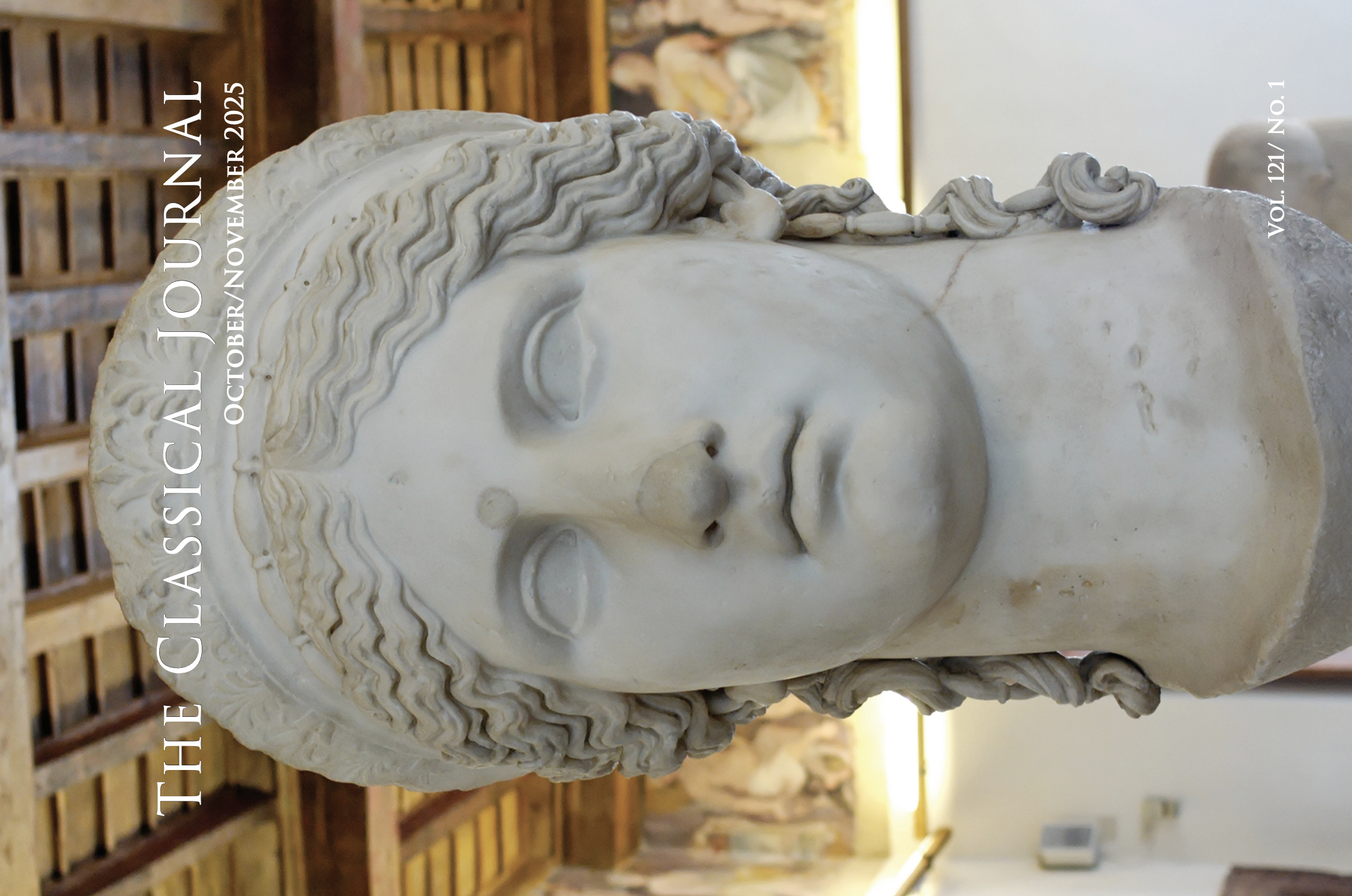The following articles are contained in CJ
109.2
Abstracts of Articles
On the Suppliants’ Sprint: The Socioreligious Context of Sophocles’ Oedipus Tyrannus 1-3
I reexamine the opening three lines of Sophocles' Oedipus Tyrannus, specifically, the meaning of
θοάζετε in line 2. Using the socioreligious institution of supplication to reframe the issue,
I argue that the word, typically translated as "you sit," is to be read as "you hasten,"
and must thus be regarded as an expression of the approach required by the supplicatory ritual.
A Cover-Up in Early Roman History: Fabia Minor and the Sextian-Licinian Reforms
The reform of the Roman magistracies made by the Sextian-Licinian rogations of 367 B.C. is celebrated
in traditional accounts of Roman history as opening the consulship to plebeians. This paper argues that
the motivation offered for this innovation by the tale of Fabia Minor, namely her social embarrassment
and her appeal to her father's help, leading to the reform of the constitution, is nothing more than a
veil to cover the ignorance of the annalists as to the true nature of what happened.
Caelum Ipsum Petimus: Daedalus and Icarus in Horace's Odes
Horace uses the myth of Daedalus' flight and Icarus' fall to explore the risks inherent in artistic
creation, to interrogate the dichotomy between art and nature and to probe the difficulties of
poetic imitation. Each of the three programmatic poems (Odes 1.3, 2.20, and 4.2) presents a
different speaker with a distinct attitude towards the mythical father and son; all three
acknowledge the possibility of artistic failure. Read together in sequence, they show how a
poet's ambitions, anxieties, and relationship to his predecessors evolve over the course of his
career.
Lucan’s Militia Amoris: Elegiac Expectations in the Bellum Civile
Lucan’s epic depicts the displacement of the elegiac notion of militia amoris by bellum civile
through his use of elegiac allusions and topoi. Specifically, Julia's ghost is parallel to Cynthia's
ghost in Propertius 4.7; the description of Erictho draws on the thumbnail sketches of witches in
elegy; Cleopatra is portrayed as a meretrix who follows Ovid’s advice in Ars Amatoria 3; Cornelia
is depicted as one of the abandoned heroines; and Pompey is cast as an elegiac lover. In each case,
however, Lucan frustrates expectations by negating or inverting the elegiac passage or topos: the
civil war thus disturbs even the apolitical world of elegy.
Unmanning an Emperor: Otho in the Literary Tradition
Otho was made out to be another Nero in the literary tradition, to the extent that his actions were
assimilated with those of the last Julio-Claudian. This includes a predilection for sexual passivity,
with Apollonius of Tyana even describing him, in a highly rhetorical passage, as having been Galba's
boy lover. Despite numerous ancient references to Otho’s ostensible effeminacy, including his
supposedly overzealous care of his person, accusations of sexual excess appear to be rooted in the
general view of the rhetorical tyrant typified by Nero. Otho’s real-life sexual preferences are clearly
unrecoverable, so this inquiry focuses instead on the way in which his sexuality was depicted by those
attempting to shape his reputation as a man unworthy of imperial office. In this study, we examine
contemporary social and philosophical tenets underpinning ancient criticism of his alleged behavior.


